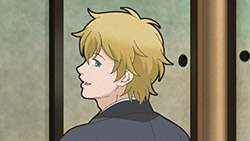 |
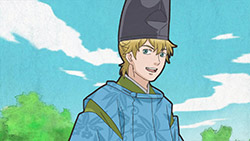 |
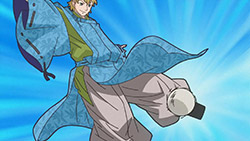 |
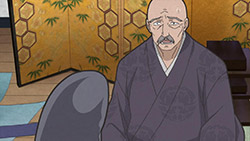 |
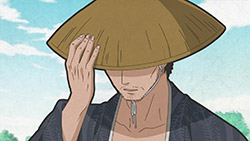 |
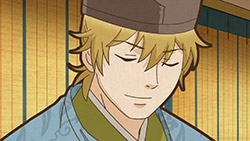 |
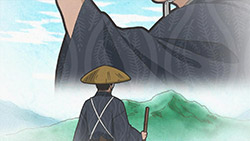 |
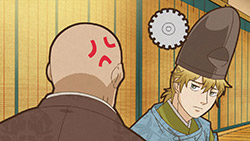 |
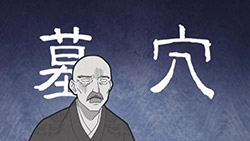 |
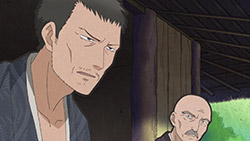 |
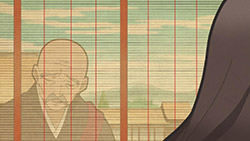 |
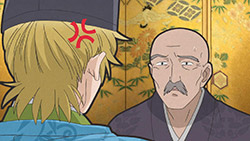 |
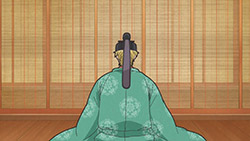 |
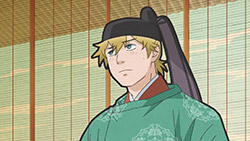 |
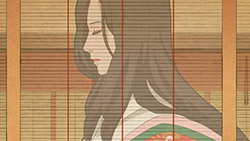 |
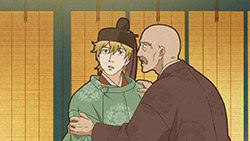 |
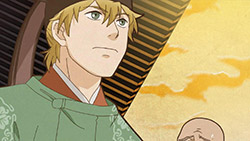 |
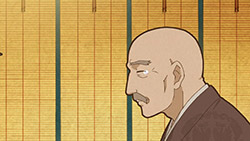 |
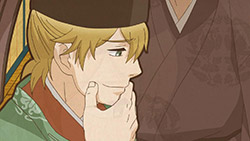 |
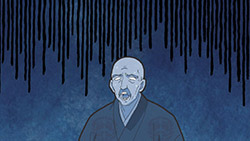 |
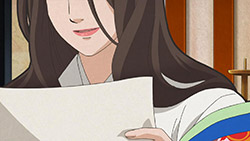 |
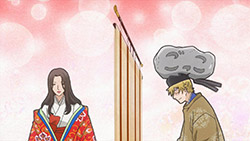 |
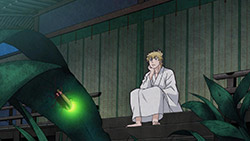 |
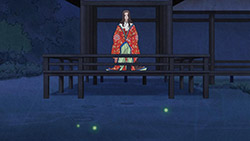 |
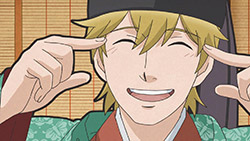 |
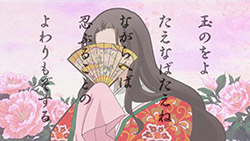 |
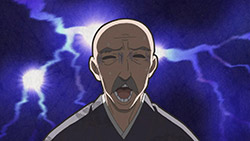 |
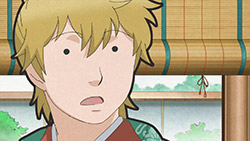 |
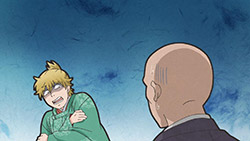 |
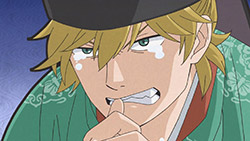 |
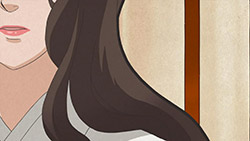 |
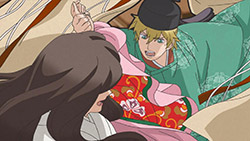 |
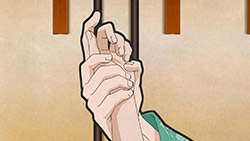 |
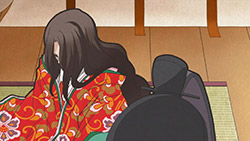 |
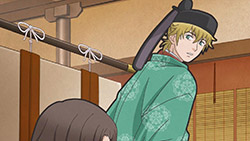 |
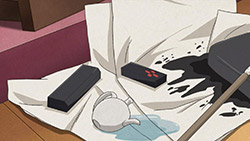 |
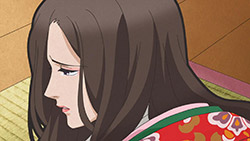 |
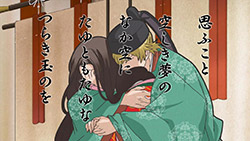 |
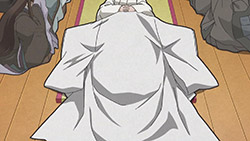 |
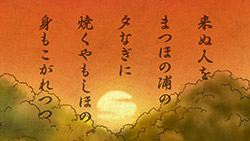 |
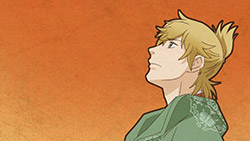 |
 |
「定家と式子 式子内親王 権中納言定家」 (Teika to Noriko Shokushi Nishinou Gon Chunagon Teika)
“Teika and Noriko Princess Shokushi Gon Chunagon Teika”
Just as quietly as it began, Uta Koi ends its run without much fanfare. Although the final tale revolving around Teika and Princess Noriko (Oohara Sayaka) didn’t quite have the same poignant or understated atmosphere as some of the other stories, it still managed to have its own charm by finally revealing the backstory behind the recurring “mystery” of the series.
Teika’s story certainly didn’t play out in any conventional manner, with his love going wholly unrequited to the end – actually there’s never really a true sense of “love” anywhere in the episode. Due to his capricious and precocious nature, it’s difficult to get a handle on his character. He changes his mind faster than a shopaholic can clean out a department store sale, and it’s precisely this jocular, borderline shallow attitude that makes it quite the task to accept his emotions as real. It very much seems like a youthful fancy, a passing infatuation that will fade away once something else catches his attention. This of course turns out not to be the case, but it’s very much the impression he leaves and I assume that’s what Noriko felt as well. The two of them have very different views of poetry, love, and life in general – this is inevitable considering the age difference between them, and the fact their personalities are like night and day does not help.
I would actually liken their relationship to that of Hazuki and Rokka’s in Natsuyuki Rendezvous, where the main character’s affections are certainly sincere, but difficult to perceive it as so because of the different places the characters are in life. Noriko is a lot frailer than Rokka however, seemingly wearied by the confines of her status and the restricted life she has been forced to lead – this no doubt contributed to the tragic end to Teika’s story. It’s clear she does not have anything else to rely on other than the small comfort poetry offered her and while it seems cruel of her to hold on to Teika even though she rejects him, it speaks to her desperation and need to hold on to a lifeline in order to continue living. Noriko feels very similar to Teishi in terms of how tragic they are; both are women who had no control over their lives, strung along by politics and the whims of court officials. There’s absolutely no doubt that is a frustrating and suffocating way to live, so who can blame Noriko for wanting a brief paradise to escape to?
Accepting that part of Noriko is what bolstered Teika’s character, however. Unlike some of the other male leads so far, his “love” isn’t the best method to judge Teika – while sincere, love isn’t what defines him. His actions are a far better way to measure the depth of his character, and accepting Noriko’s need for poetry and not a lover revealed a maturity that wasn’t immediately clear. It validates the realness of his emotions and marks a moment of change where his personality takes a different turn. I find this apt since Teika’s tale isn’t really about his failed love, but how that experience gave him a reason to love and embrace poetry. Noriko, while certainly a character on her own, is mainly a frame for Teika’s growth – she pushes him past what he knows and forces him to mature. Quite simply, she is the reason the Hyakunin Isshu exists. That’s the connection Uta Koi seems to be implying, and if it is true, then there’s something poignant about Noriko finding life through the poems that Teika picked out of the passion she inspired him with.
Final Impressions – Standout Stories
Opening stories always leave an impression, and suave Narihira and tsundere Takaiko certainly left a lasting one. His poem is my favorite one of the Hyakunin Isshu because of the vivid and grand imagery used in the verses. The symbolism is rich and the picture the words paint in the readers’ mind is colorful and full of life, unbridled and powerful. Narihira is also a character that made the deepest impact in the series – cavalier yet passionate and flippant yet mature, he was a combination of characteristics that gravitated viewers’ attention towards him and radiated on-screen charisma. He commanded every single one of his scenes with ease and his rapport with Takaiko was a delight to watch.
Despite my dissatisfaction with the resolution of the lovestory, I did like the characters, particularly Munesada. I found him strangely likeable and although his words can sound dangerously sexist to modern viewers, it offered a glimpse of the social expectations of men and women during that time period. And he was certainly easy on the eyes.
No explanation necessary.
With another poem that was quite rich in symbolism, the poem was a perfect snapshot of the bittersweet turns life and love can take. Sometimes it just doesn’t work out and the parting can leave many things left unsaid, many emotions that never find proper closure. I feel this was the one tale that could have ended happily as social standing was not really an issue that posed much problems for this couple. But I suppose that’s the unpredictability of love and life at work – nothing works out the way it’s supposed to.
This was another story that tugged at my heartstrings, because it really could have worked. But the timing just wasn’t there, and timing is critical in love. The situation can be perfect – wonderful chemistry, genuine feelings – but if you’re not ready for it, it isn’t going to wait for you. For Nagiko and Yukinari it’s missed timing over and over again, as Nagiko closes off her heart after Sanetaka and Yukinari stops contacting her. The episode also had one of the best visual composition in the series and the directing was particularly exemplary in making sure every element came together to convey the emotions behind the scenes.
Final Impressions – General
Uta Koi is a show that flew under most people’s radar – poetry combined with history sounds like a highly intimidating and unfriendly genre, and I do admit some episodes did require some vague understanding of Japanese history during that time to fully appreciate the scope of societal issues the show touched upon, the major one being the role of women and poets in the era. But knowledge of the time period wasn’t necessary to enjoy Uta Koi, which is the most important thing. Prior experience with the Hyakunin Isshu was also unnecessary, as the show was more about providing context to the poems rather than providing a thorough literary analysis. In that aspect, the first half of the series accomplished the task exceedingly well, complemented by a lively cast of characters that established some great and lasting rapport with one another and with the audience. The poems felt like they had an integral role in each of the tales, whether as the illustration of the characters’ feelings or a snapshot of their lives. Whatever the case the verses were a part of them, carrying some sort of thematic message that encapsulated the story as a whole.
Admittedly, the series lagged a little in its second half as the poems became more of add-ons than something that tied the events of the tale together, resulting in a loss of thematic cohesiveness that was present in the first half. The cast, while memorable, didn’t have the same vivacity as the likes of Narihira, Yoshiko, and Yasuhide. There was a general somber atmosphere to the characters of the mid-Heian period and the fact there wasn’t really a solid sense of continuity as there was in the previous arc leads to a more disconnected, self-contained feel. This improved with Yukinari and Nagiko’s tale spanning several episodes, but the lack of intimate interaction across the cast was slightly disappointing. Narihira, Yoshiko, and Yasuhide’s friendship was sweet and featured different facets to each of the characters that contributed to their depth and growth.
I did like the melancholy nature of the tales in the second arc much better though, particularly that sense of missed timing and bittersweet memories in Yukinari and Nagiko’s story. Their friendship and love has the makings of a typical romance drama/movie that spans several years, chronicling snippets of a relationship that could have worked wonderfully. At the same time though, it rings true to life – sometimes, no matter how much we want to go back the past, we can’t. It’s a feeling every person can relate to, the feeling of having things left unsaid, trying to come to terms with the past and an unfavorable present. It’s something to appreciate about Uta Koi, subverting happy endings in favor of that somberness. The feelings last longer and it tells a wonderful message: that one great love is not the end all be all. I’ve felt the same message first in Narihira’s tale, where as sad as it was, he and Takaiko went on with their lives. Neither forgot their love, but life doesn’t wait. The only way to go is forward and they respected their time together in the greatest manner by carrying on and living their life. All the characters share a common thread – their love might not have worked out, but they learn to move on from it and let it change them, inspiring them to do greater things as in the case of Kaori and Teika, or using the memories as a reprieve and consolation as in the case of Yukinari, Masako, and perhaps Yoshiko.
Chouyaku Hyakunin Isshu: Uta Koi is not a show that would attract many viewers with its unique visual style and genre. But for those who watched it, it instilled a deeper appreciation for poetry, and love and life in general.
NOTE: So sorry for the late post. On top of settling down I caught a cold…
Full-length images: 2, 4, 5, 6, 7, 10, 13, 14, 15, 17, 18, 19, 21, 23, 24, 31, 34, 35, 36, 39, 40, 41.

Truly loved this series. I got interested in those poems thanks to Chihayafuru and then gave this series a shot without much of expectations. Thanks to Utakoi I can somehow understand Kana-chan’s idea of a poem not just being words on a white paper, but a colorful image with lots of background. I was pretty much a Chihaya that didn’t know anything about the composers of those poems. xD
A recommended series for all those who like bittersweet stories and Japanese history. 🙂
Also a big thank you for Bakamochi for providing such detailed summaries and background information that wasn’t in the episodes itself ^^ (just like this one)
Now gonna find something to keep me busy until Chihayafuru 2nd, though seeing the fall season preview… I don’t think that’ll be too difficult. 😀
a series i will definitely miss with the start of Fall season next week. thanks for covering UtaKoi even though it’s not as popular as other series Mochi. ^_^.“
GET WELL SOON!!
Best series of the season. I was glued to the screen the entire time. Never a missed moment for me. Loved it!
This is one show I will appreciate and love for the rest of my life. This is a show where if you want to listen to poetry but the nearest cafe shop isn’t around this is what you would listen to.
There’s something about this show that each character doesn’t need to have multiple episode to develop their character. Every ep is as enjoyable as the other and may or may not hit true to the audience.
We all can take something out of this show. These are not just poem but also way of living your life or teachings of how to move on and mature. ;-; Cheers for Uta Koi
As the saying goes, “it is better to have loved than to not have loved at all.” That would be the theme I always got from all the episodes, aside from the parody episode. And as I watched the last episode and then the first episode later, it hits me to think that the stories are linked in a perfect loop. That is, I could watch the last episode as the first one and the story will still flow as good in my opinion. There many different approaches and feelings for love that the few words from each poems would symbolize a different meaning of what each character experience. So what I’m also trying to say is that it’s hard to expect the unexpected of what love throws at you. And in these cases, given the era and with the traditions mixed into it all, the factors of both partners making a great effort to achieve happiness was not enough to make their love strong enough to last. Overall, the message I got was “love is to be cherished.”
A wonderful underdog of a series!! I enjoyed every bit of it, and its unconventional take on history was welcome as well!!
Thanks so much for blogging this wonderful show, Bakamochi!!
When Utakoi was announced I was already sure to watch it as I’m quite fascinated by that ancient, highly aesteticized culture of Heian-kyo. And the series did not disappoint me at all but ended as one of my favorites from this season. I just loved how it depicted the dreamlike and melancholic atmosphere the secluded court life of that era might have had. It was also a good opportunity to get to know some of the poems of Hyakunin Issue and to spend some thought on their meaning and context. I agree with you, Bakamochi, that the first half was much better in this respect.
This series doubtless had a limited budget and virtually no animation but I didn’t mind at all. On the contrary, I enjoyed letting my eyes rest on the splendid pictures of the women with 12 layered kimonos in the most exquisite color combinations and long, flowing hair spread around them. The use of patterns was excellent, as well. As a sidenote, I didn’t mind at all that the creators skipped some of the more outlandish parts of that time’s ideas of beauty like shaved and re-painted eyebrows or blackened teeth 😉
My favorite episode was #4 with Yoshiko, Narihira and Yasuhide merrily discussing poetry although their personal situations couldn’t be more different from each other. Thank you so much for blogging, Bakamochi, and in particular for your thoughts on the poems!
I love this series so much I postponed watching this final episode. It was nice how the story made a full circle back to Teika adorning the walls with the poems. I really wished this series was longer…although the animation was not exquisite, I enjoyed the humor and the touching storylines very much. Also, Kaji Yuuki as Teika was suprisingly fitting…he doesn’t use his usual high pitched voice (Kuroshitsuji and Guilty Crown) which often made me cringe.
I’m going to really miss this show 🙁